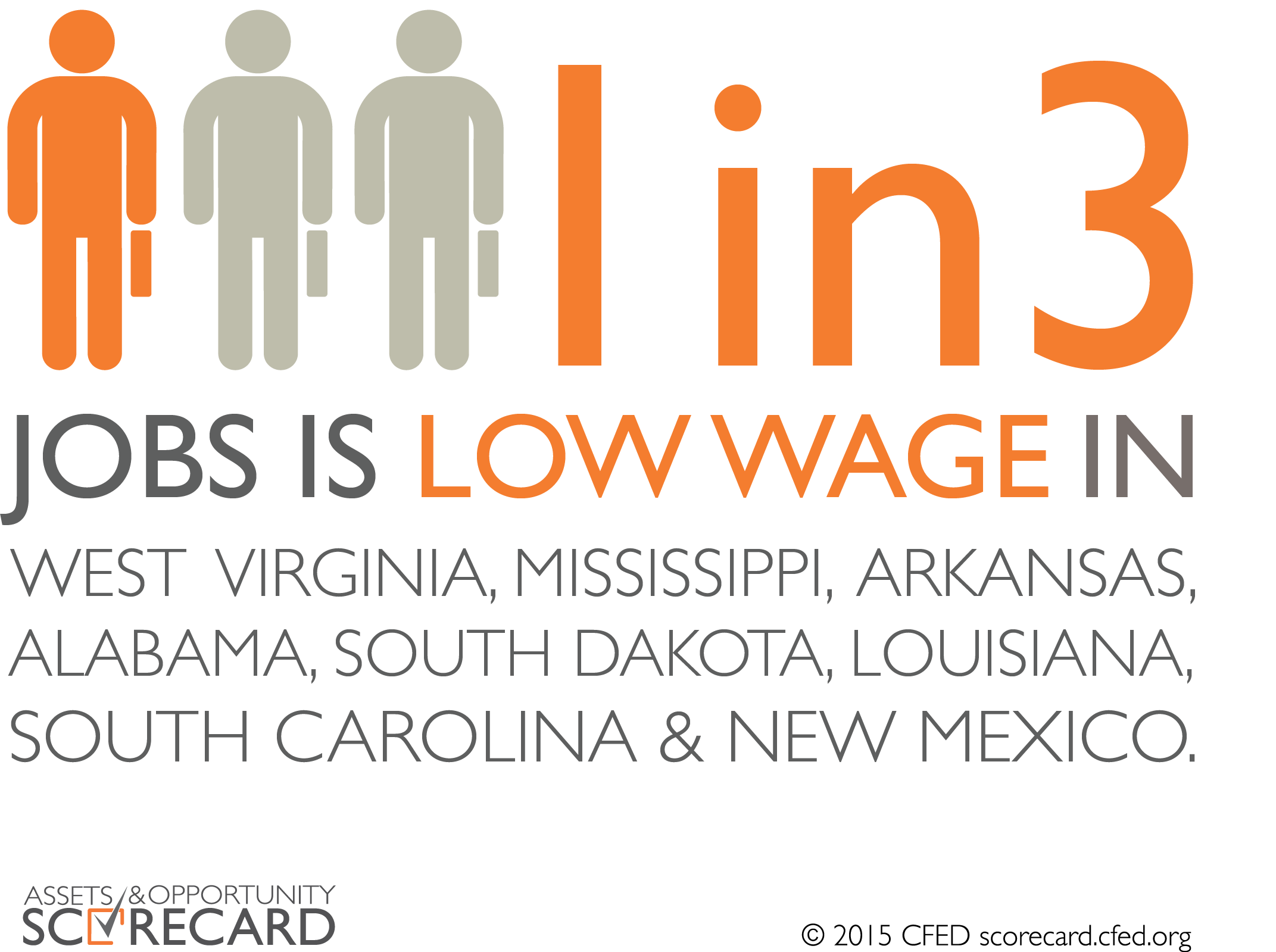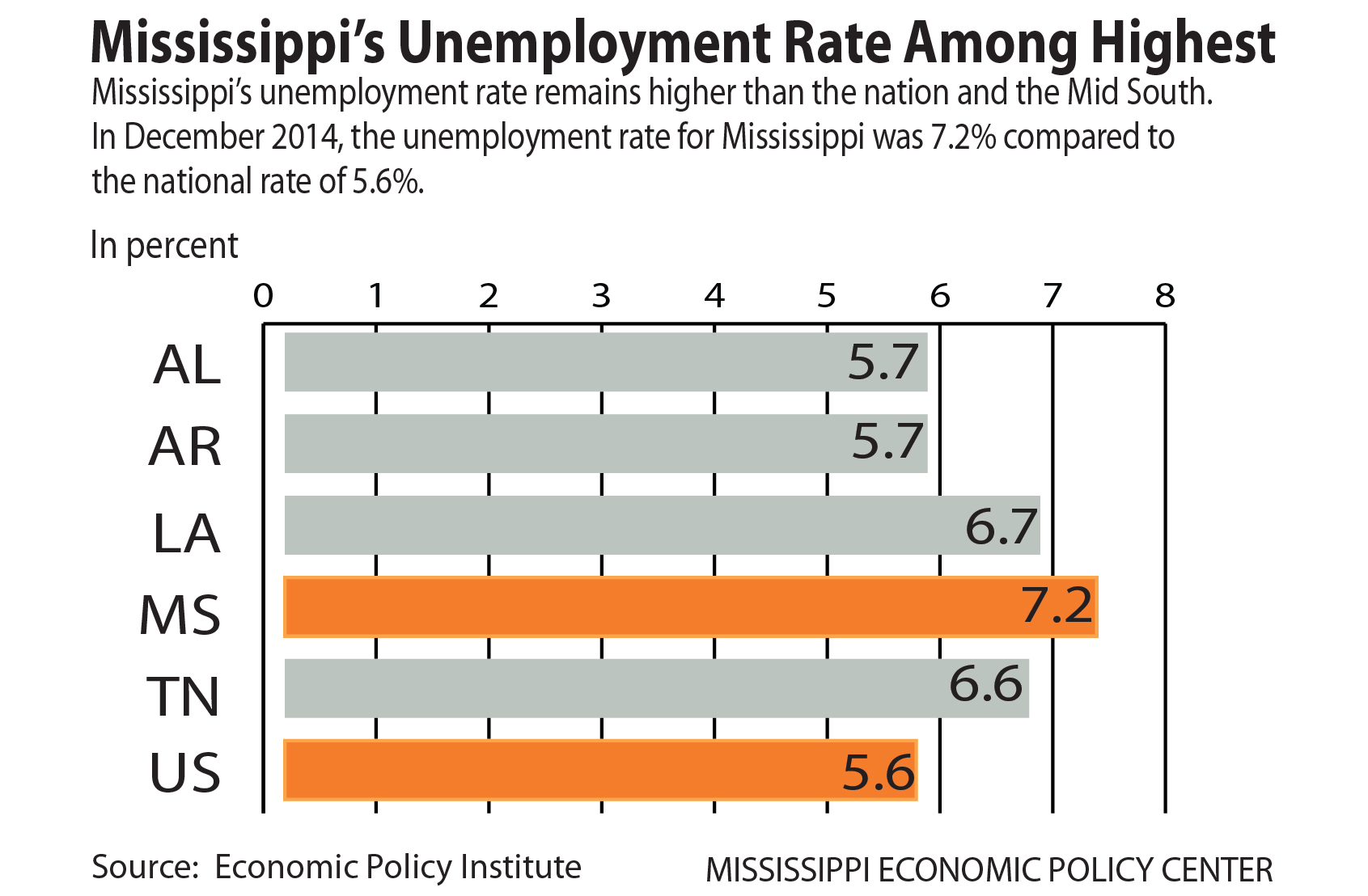Mississippi Continues to Struggle with Job Growth and Quality
February 6th, 2015
New data underscores that it is becoming increasingly more difficult for Mississippi families to get ahead financially because of unemployment and low-wage jobs. It is more important now than ever before that our state’s leaders invest in policies that will lift more families out of poverty. According to recent data from the Bureau of Labor Statistics, Mississippi’s unemployment rate remains higher than the nation and the Mid South (See Chart). In December 2014, the unemployment rate for Mississippi was 7.2 percent compared to the national rate of 5.6 percent. Mississippi also had 40,000 fewer jobs in December than it did before the Great Recession. The unemployment rate is not only a strong indicator of the state’s economy but also of a family’s financial stability.
Unfortunately, having a job may not be enough to lift a family out of poverty. Many families work full-time but still do not earn enough to cover their basic financial needs. Even more troubling is the fact that many low-wage jobs lack important benefits such as health insurance, paid sick leave, and paid vacation. According to the 2015 Assets & Opportunity Scorecard, Mississippi has the second highest rate of low-wage jobs in the nation, only behind West Virginia. Low-wage jobs are those that pay wages below the 100 percent poverty threshold. An example is a family of four who earns $23, 283.

The numbers of low-wage jobs increased almost 3 percentage points since last year. Over one-third (37.9 percent) of all jobs in the state are low-wage jobs. These jobs are disproportionately held by women and minority workers.
Without livable wages earned through employment, families will have difficulty paying for their basic needs, not to mention paying off debt or saving for the future. The state’s continued struggle with unemployment coupled with the high prevalence of low-wage jobs has made it increasingly more difficult for Mississippians to lift themselves out of poverty and climb the economic ladder. It is important to look beyond the numbers and evaluate whether or not the jobs created allow the state’s workforce to have long-term financial security.
Sources:
Corporation for Enterprise Development. (2015). Assets and Opportunity Scorecard, 2015. Retrieved fromhttp://assetsandopportunity.org/scorecard/
Economic Policy Institute. December 2014 Job Watch.







